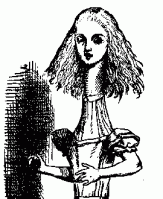
There is a secondhand bookshop at 56 Charing Cross Road in London that bears the name ‘Any Amount of Books’. It is an acclaimed place to browse, but surely it ought to be called ‘Any Number of Books’ as a book is not an uncountable noun. The proprietor not doubt knows this. If he really liked the word ‘amount’, ‘Any Amount of Literature’ would have been more correct, but would it have been better?
Countable nouns can usually have a singular form and a plural form and they usually refer to things. Most countable nouns become plural by adding an ‘s’ at the end of the word (or in some cases, ‘es’ as in ‘boxes’). There are quite a few exceptions though. Nouns can be mutated: child = children, mouse = mice. Latin or Greek forms can be kept: criterion = criteria and fungus = fungi. And nouns that end in certain letters can have irregular plurals: a consonant and a y, as in baby = babies, an f or fe as in leaf = leaves, or an o as in hero = heroes. But this is to deviate, which is almost inevitable when discussing the ins and outs of the English language.

Chapter 2 of Lewis Carroll’s Alice’s Adventures In Wonderland begins “Curiouser and curiouser! cried Alice (she was so much surprised, that for the moment she quite forgot how to speak good English)”. These days ‘curiouser and curiouser’ would more likely be used to politely express disbelief rather than a sense of wonder, and such might be the reaction of students of the English Language students wrestling with uncountable nouns.
Uncountable nouns are for the things or substances such as tea, sand, water, air, rice, that cannot be divided into separate elements, we cannot ‘count’ them. They are often collective nouns: equipment, furniture, luggage; or abstract ideas, concepts, or qualities such as anger, beauty, fear, knowledge, love. Uncountable nouns do not usually have a plural form. We cannot say sugars, angers, knowledges.
Why do we have these uncountable nouns? Many of these nouns are countable in other languages but not in English. This might be connected with the way English speakers picture these nouns as a single concept or one big thing which is hard to divide. But there are no rules as to when a noun is countable, and hence have a plural form, and when a noun is uncountable, and this apparent randomness makes it very difficult for people learning the language.
Whilst countable nouns can be quantified by saying ‘a meal’, ‘few holidays’, or ‘many books’, we can’t say ‘a rice’ or ‘a few milk’. We have to say an amount of something, that is quantify it: ‘a grain of rice’, ‘bottles of milk’, ‘a burst of sunshine’, or ‘a piece of research’. So where something is described in this way, it is a sure sign that you are dealing with an uncountable noun.
| Uncountable nouns are usually preceded by: | Countable nouns are usually preceded by: | ||
| some | some money | these or those, each or every, either or neither | these plants, each day, neither game |
| a little, less, or least | a little salt, less homework | few or fewer | few cars, fewer students |
| enough, lots of, plenty of or much | enough rice, lots of sleep, much sleep | several or many | several books, many changes |
And uncountable nouns are only used with a singular verb, ‘the news is very worrying’, ‘your luggage looks heavy’.
The wide variety of uncountable nouns is illustrated in the table below. (more…)